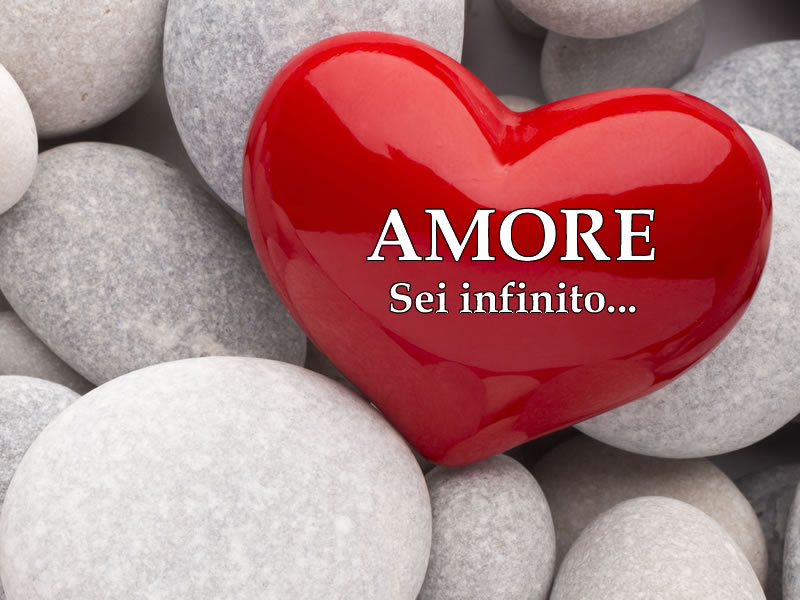Have you ever stopped to think about a word that just seems to carry so much feeling, so much depth? Well, there's a word, really, that does exactly that. It's "amore," and when we talk about amore e amore, we're getting into the very heart of what this beautiful Italian term truly means. It's a concept that goes way beyond a simple translation.
You see, "amore" isn't just about one kind of affection. It's a word that wraps itself around many different feelings. It's used for the deepest connections we share with others, and it also covers those strong pulls we feel towards things we really care about, like a hobby or a furry friend. So, it's almost like a big umbrella for all sorts of warm sentiments.
Today, we're going to unpack this special word, exploring its many uses and how it helps us talk about all kinds of bonds. It's a term that has been around for ages, and it still holds so much power in conversations, too. We'll look at how people use it every day, and what it really means when someone says "amore."
Table of Contents
- What is Amore e Amore, Really?
- The Many Faces of Amore
- Using Amore in Italian Expressions
- Understanding Amore's Grammar and Plural Forms
- Why Amore e Amore Matters Today
- Frequently Asked Questions About Amore
What is Amore e Amore, Really?
More Than Just a Word, a Feeling
When someone says "amore," it’s not just a simple word. It's a feeling, a really intense feeling of connection. This term, you know, it means deep affection. It's for a person, for sure, but it's also used for other things too. It's pretty versatile, actually.
You might use it for a pet, or even a passion you have. For example, if you really love to paint, you could say it's your "amore." So, it's not just about romantic connections, which is interesting, you know. It covers a broader spectrum of heartfelt feelings.
This beautiful word, "amore," means to love in Italian. It can be described as a deep emotional attachment and desire towards another person. This often involves a strong feeling of intimacy, romance, and attraction, or so it seems. But, as we'll see, it has even more uses than that.
Its Roots in "Amare"
The word "amore" has a history, you know. It comes from the Latin word "amare." That Latin root means "to love." So, you can see how the meaning has carried through time. It's a masculine noun in Italian, which is a detail that helps with grammar, of course.
This term really encompasses an intense feeling of deep affection. It's quite similar to the English word "love" in that way. Yet, it feels like it has a certain lyrical quality, doesn't it? It just sounds so warm and inviting, truly.
It's important to remember that this word is not just a translation. It carries a whole cultural weight with it. So, when you hear "amore," it's more than just a sound. It's a feeling, a long-standing tradition of expressing deep care.
The Many Faces of Amore
Amore for People: From New Sparks to Deep Bonds
The flexibility of "amore" when talking about people is quite something. You can use this term, you know, to describe someone you just met. Perhaps you have some feelings for them, a new spark. That's "amore" too, in a way.
It also works for a casual partner, or even someone you love very deeply. This means the word adapts to the intensity of the relationship. So, it's not just for those grand, lifelong declarations, which is kind of cool. It's for the everyday feelings too.
It can mean a beloved person, or a loved one. It's a synonym for attraction and passion in many contexts. This versatility is part of what makes it so special. It truly covers a wide range of human connections, from the first flutter to the most profound bond.
Amore Beyond Romance: For Passions and Animals
As we talked about, "amore" isn't only for people. It means an intense feeling of affection, yes, but it can also be used for an animal. Think about your favorite pet, for instance. You can certainly feel "amore" for them, too.
It's also used for a passion. If you have a hobby you absolutely adore, like cooking or gardening, you could say it's your "amore." This expands the meaning beyond just living beings. It shows how deeply one can connect with activities and interests, really.
This broader use helps us understand the true breadth of the word. It's not limited to just romantic love, or even familial love. It's about any strong, positive emotional pull. So, it's quite inclusive, actually, in its reach.
Amore as a Sweet Pet Name
You can also use the word "amore" as a pet name. It's a really sweet way to address someone you care about. It's a term of endearment, like "honey" or "darling" in English, you know. People use it often for their significant others.
But it's not just for romantic partners. Parents might call their children "amore." Grandparents might use it for their grandchildren. It shows a deep, tender affection, regardless of the specific relationship type. It's a warm, personal touch, truly.
This use makes the word feel even more personal and intimate. It's a way to express closeness and warmth in a very direct manner. So, if you hear someone called "amore," it's a clear sign of affection, more or less.
Using Amore in Italian Expressions
"Fare l'Amore" Versus Just "Amore"
This is a really important distinction, actually. While "amore" means love, the phrase "fare l'amore" has a very specific meaning. It translates to "to make love." So, it's not just about the feeling, but the act, you know.
For instance, you might hear "vorrei far l'amore con te," which means "I would like to make love with you." This is different from simply expressing the feeling of love. It's a physical expression of that deep connection, really.
Understanding this difference is key to speaking Italian accurately. Just saying "amore" doesn't imply the same thing as "fare l'amore." So, it's a nuance that's pretty important to get right, especially in conversations, of course.
Saying "I Love You": "Ti Amo" and Beyond
When you want to say "I love you" in Italian, the most common phrase for a romantic partner is "Ti amo." This is the direct translation for expressing deep, romantic love. It's a very strong statement, typically.
However, if you want to say "I love you" to friends or family, you'd usually use "Ti voglio bene." This phrase means "I wish you well" or "I care for you deeply." It's a loving sentiment, but without the romantic undertones of "Ti amo." So, it's a crucial difference, you know.
Learning how to say "I love you" to your partner and friends, and much more, involves knowing these subtle differences. It's about choosing the right words for the right relationship. This shows respect for the language and its nuances, really.
Other Common Phrases with Amore
There are many Italian love expressions that use the word "amore." For example, "follia d'amore" translates to "madness of love." This phrase captures a very intense, sometimes overwhelming, kind of affection. It's quite dramatic, actually.
You might also hear phrases that talk about the "first love," or the "love of my life." These expressions build on the core meaning of "amore" to describe specific types or stages of affection. So, the word is a building block for many common sayings.
Exploring the meanings of "amore" in Italian, and how to use the word, involves looking at these common phrases. They show how integrated the word is into everyday language. It's a fundamental part of expressing feelings, more or less, in Italian.
Understanding Amore's Grammar and Plural Forms
Amore as a Masculine Noun
As we briefly touched upon, "amore" is a masculine noun in Italian. This is important for sentence structure and agreement with other words. For example, if you were to describe it, you would use masculine adjectives, you know.
This grammatical detail helps speakers form correct sentences. It's a basic rule of Italian grammar, really. Knowing the gender of nouns is a fundamental part of learning the language. So, "amore" falls into that category, of course.
Understanding this helps in using the word correctly in various contexts. It ensures that your sentences sound natural and grammatically sound. It's a small detail, but an important one for anyone learning Italian, typically.
When Amore Becomes "Amori"
Like many nouns in Italian, "amore" has a plural form. The plural of "amore" is "amori." This means "loves" or "affections." So, when you're talking about multiple instances of love or multiple beloved individuals, you'd use "amori," you know.
For example, someone might talk about their "amori," referring to the different people or passions they hold dear. It's a way to express the multiplicity of these deep feelings. It's quite common, actually, to hear it used this way.
This helps to convey a broader sense of affection. It's not just one single feeling, but a collection of them. So, understanding the plural form adds another layer to how you can use and understand this beautiful word, really.
Why Amore e Amore Matters Today
A Timeless Connection
The word "amore" has been around for a very long time, and it continues to be relevant today. It speaks to universal human experiences, you know. Feelings of deep connection, passion, and affection are timeless. They don't really change with the years.
Even in our fast-paced world, the need to express and understand these feelings remains strong. "Amore" provides a powerful way to do that. It's a word that resonates deeply with people, regardless of the current trends. So, it holds a special place in language, truly.
Its enduring presence in literature, music, and everyday conversation shows its importance. It's a word that bridges generations and cultures. It's a testament to the lasting nature of human emotion, more or less.
Its Place in Modern Talk
Today, "amore" is still very much a part of modern Italian conversations. It's not just a word from old poems; it's used in everyday chat, too. People use it in texts, in social media posts, and when they're just talking face-to-face. It's a lively word, you know.
Its meaning remains consistent, even as the ways we communicate change. Whether it's a heartfelt declaration or a casual term of endearment, "amore" adapts. It continues to be a central way to express warmth and connection. So, it's quite adaptable, actually.
This continued use highlights its power and versatility. It's a word that stays fresh because the feelings it represents are always current. It's a beautiful example of how language keeps pace with human experience, really. Learn more about amore e amore on our site, and you can also find more details on this page .
Frequently Asked Questions About Amore
What is the primary meaning of "amore"?
Basically, "amore" primarily means "love" or "affection" in Italian. It refers to a deep emotional attachment and desire, often involving intimacy and attraction. It's a very strong feeling, you know, for a person, an animal, or even a passion.
Can "amore" be used for non-romantic relationships?
Absolutely. While it's often linked with romance, "amore" can also describe deep affection for family members, close friends, pets, or even strong passions like a hobby. So, it's quite versatile in its application, actually.
Is there a difference between "Ti amo" and "Ti voglio bene"?
Yes, there's a significant difference. "Ti amo" is typically reserved for romantic love, expressing deep, passionate feelings for a partner. "Ti voglio bene," on the other hand, is used for friends and family, conveying a strong sense of care and affection without the romantic implication. It's a really important distinction to remember, of course.



